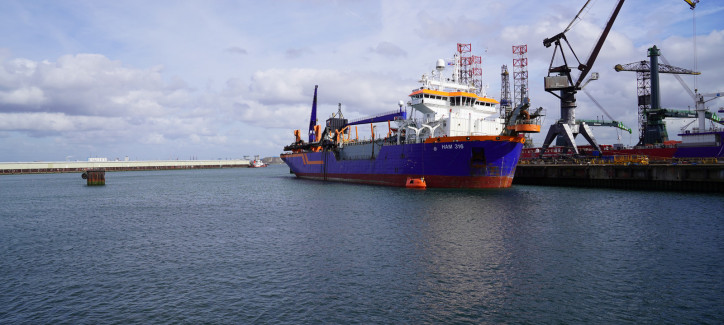Together with Shell, Van Oord is testing the use of biofuel on its fleet. The biofuel reduces CO2 emissions by more than 40% compared with conventional marine fuel. This test fits in with the ambitions of both parties to reduce the CO2 emissions in the maritime industry. The first pilot will take place during a dredging project in Germany on Van Oord's trailing suction hopper dredger HAM 316.

"We are very proud of this collaboration with Van Oord. Biofuels are one of the solutions for shipping that can be implemented in the short and medium term. Biofuels can be blended with conventional fuels without the need for major technical modifications to the engines. Partners such as Van Oord have the technical expertise to monitor and supervise such pilots effectively." - Pepijn van den Heuvel, project leader at Shell.
The shipping industry is being faced by major sustainability challenges. By 2050, global shipping will have to emit an average of 50% less CO2 than in 2008. In addition, Van Oord has signed the Green Deal with the aim of achieving a 70% reduction by 2050 compared with 2008. That's why Van Oord and Shell are working together to reduce emissions from vessels. Both parties have signed an agreement to carry out a large-scale biofuel pilot. Following the pilot, the possibility of using biofuels on other vessels will also be examined.
"We invest in initiatives and partnerships that contribute to the sustainable implementation of our projects. Our aim is to achieve a significant reduction in emissions. This partnership with Shell is an important step in this process." - Ronald Schinagl, Director Business Unit Netherlands at Van Oord
Source: Van Oord